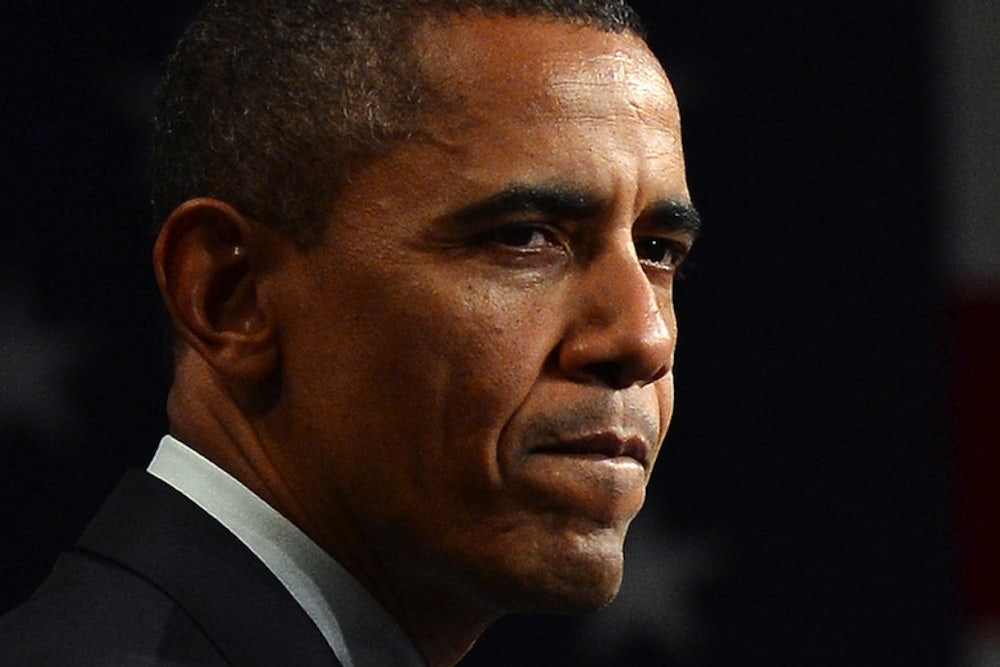This piece has been updated throughout to reflect breaking news in advance of the president's 11 a.m. speech.
President Barack Obama on Friday will announce his response to the NSA surveillance scandal. According to a New York Times report, Obama has decided to split the difference between advocates of privacy and security, allowing the government to continue to hold telephone metadata for now but calling on the attorney general, the intelligence community, and Congress to report back to him about how the program might continue without the government holding the metadata.
Obama’s openness to ending the government’s bulk collection of data is welcome. But unless he commits to ending it after the study is complete, he will continue to oversee a program that's likely unconstitutional.
The president’s advisory commission took care to stress that its recommendations were based on policy considerations alone. But as Geoffrey Stone, a member of the advisory commission has argued, the same flaws that make the NSA’s bulk telephone metadata program a bad policy also make it an unreasonable search under the Fourth Amendment. The data can reveal a great deal of personal information, is susceptible to abuse without adequate safeguards, and can be queried by NSA agents without judicial oversight. As Stone notes, the constitutional question isn’t obvious—there are good arguments on both sides and two judges have come to the opposite conclusion. But Obama, at the very least, has an obligation to explain why he believes that bulk data collection by the government is or is not consistent with the Constitution. And if he believes the government’s mass data collection isn’t constitutional, he needs to end it regardless of what his study group reports.
If any official body is most to blame for the NSA scandal, it is the Foreign Intelligence Surveillance Court itself. The FISA judges recklessly approved the mass collection of telephone data under Section 215 of the Patriot Act, even though the authors of the law say they never intended prospective mass surveillance unlinked to specific investigations. And then a FISA judge upheld the mass data collection in a cursory, legally unconvincing opinion. It’s not surprising that spy agencies like the NSA try to collect as much data as possible; the fact that they were permitted to do so by a secret court that only hears the government’s side of the argument is indefensible.
The president’s advisory panel recommended reforms of the FISA court, including the creation of a privacy advocate who would represent civil liberties interests, more transparent opinions, and appointment of judges by the entire Supreme Court, not just the chief justice. In an unusual response to these recommendations, Judge John Bates, who has served as a respected presiding judge on the FISA Court, urged Obama and Congress not to adopt them. The New York Times report suggested that despite Bates’s objection, Obama has decided to recommend the creation of a privacy and civil liberties advocate. This is a welcome and significant step. But if Obama has failed to adopt the other court reforms, including greater transparency and a more balanced appointment process, the body most responsible for the mass surveillance program’s excesses will remain flawed at its core.
It’s unfair, of course, to blame the FISA Court for all the constitutional failures of the mass surveillance program: The Obama and Bush administrations didn’t have to demand the mass collection of data in the first place. Freedom can’t survive without a self-restrained executive, and Obama’s openness to ending the mass collection of telephone data deserves cautious praise. Now he has to follow through.
